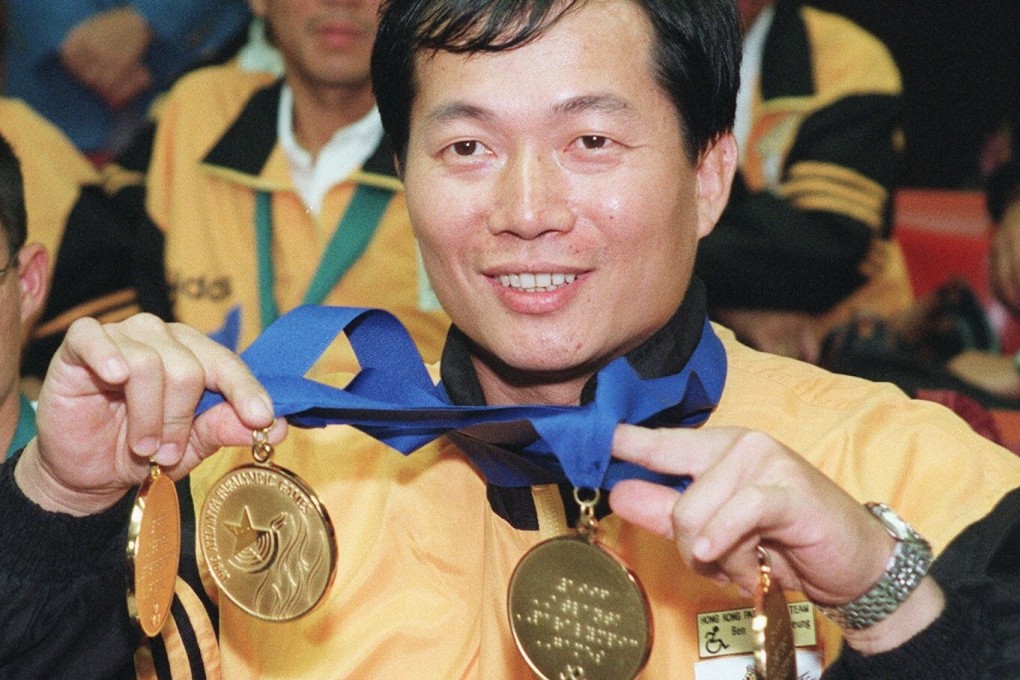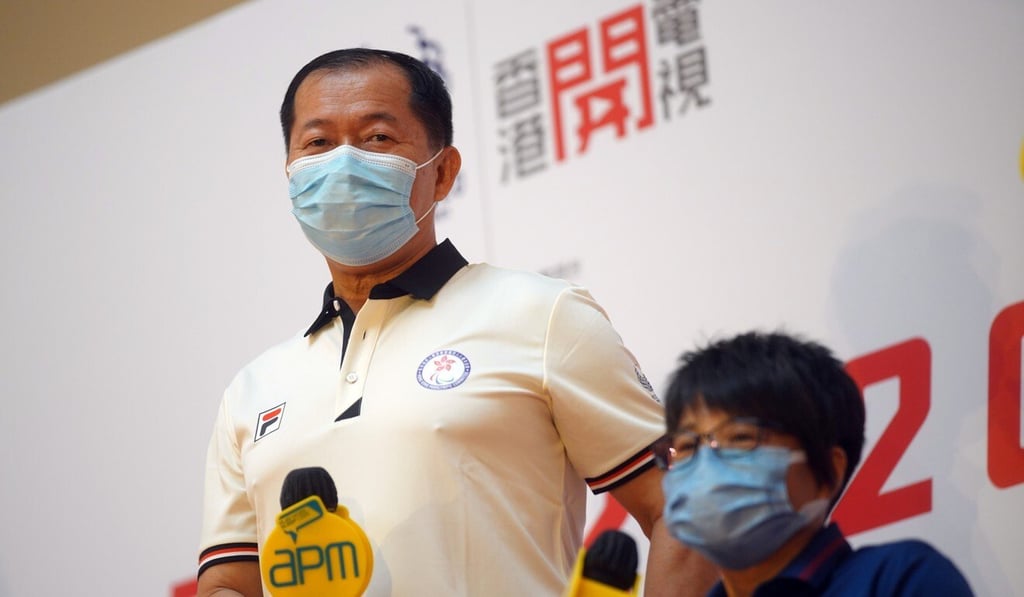Tokyo Paralympics: Hong Kong fencer Ben Cheung’s four gold medals at Atlanta Paralympics remembered as a major breakthrough
- The retired firefighter became one of Hong Kong’s most successful disabled athletes after his golden haul at the 1996 Atlanta Paralympics
- Cheung lost his left leg during a rescue operation when he was just 23 but that didn’t stop him from achieving success in his sport

Celebrated wheelchair fencing champion Ben Cheung Wai-leung cherishes the four gold medals he won 25 years ago at the 1996 Atlanta Paralympic Games.
He wouldn’t have been one of Hong Kong’s most famous disabled athletes if not for one fateful night 38 years ago when Typhoon Ellen hit the city and changed his life forever.
With the 2020 Tokyo Paralympics due to kick off on Wednesday with Hong Kong’s 24 disabled athletes kicking-off their campaign, Cheung is remembered for his remarkable achievement of winning two individual gold (foil and épée) and two team gold medals in the same discipline. His four gold medal haul made Cheung the most successful Hong Kong men’s disabled athlete at a single Paralympic Games. Female fencer Alison Yu Chui-yee also won four golds at the 2004 Athens Paralympics but Cheung will be remembered for being the first to make the breakthrough.
Cheung will never forget the day typhoon signal 10 was hoisted in the summer of 1983 and how Typhoon Ellen caused havoc, leaving a trail of destruction that would leave him seriously injured.
At the height of the storm, tonnes of rain-loosened mud slid from the slopes of Mount Davis, taking everything in its path as it hurled towards residential squatter huts on the seaside toward the harbour.

Cheung, who was then a 23-year-old young firefighter stationed at Wan Chai fire station, was caught up in the drama. He lost the use of his left leg while saving a 75-year-old woman in the landslide.
“My left leg was amputated at Queen Mary Hospital,” said Cheung.